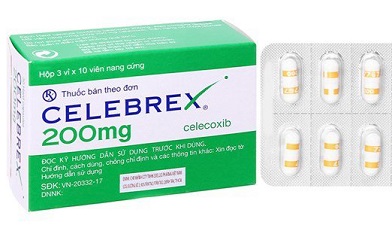COVID-19 Drugs: Early Clinical Data Shows That Celecoxib Monotherapy Helps For Treatment Of Moderate Depressive Symptoms Following COVID-19 Infection
Thailand Medical News Team Aug 24, 2023 2 years, 1 month, 3 weeks, 5 hours, 7 minutes ago
COVID-19 Drugs: The COVID-19 pandemic has not only challenged the global healthcare system but also revealed a range of unexpected health consequences beyond the acute respiratory symptoms caused by the virus. One of these unforeseen consequences has been the impact on mental health, particularly depressive symptoms experienced by individuals recovering from COVID-19. In light of this, researchers from Tehran University of Medical Sciences embarked on a pioneering clinical trial to investigate the potential benefits of using celecoxib, a nonsteroidal anti-inflammatory agent, as a monotherapy to alleviate moderate depressive symptoms in COVID-19 patients.
 Understanding the Objective
Understanding the Objective
The objective of the study was to assess whether celecoxib, a medication known for its anti-inflammatory properties, could serve as an effective standalone treatment for moderate depressive symptoms in patients recovering from COVID-19. Previous research had already indicated that celecoxib might be beneficial in the treatment of unipolar and bipolar depression when used in combination with other therapies. However, this trial aimed to evaluate the isolated efficacy of celecoxib in addressing depression following a COVID-19 infection.
The Study Design
Conducted as a randomized, double-blind, placebo-controlled clinical trial, the
COVID-19 Drugs study included 62 patients who exhibited moderate depressive symptoms after recovering from COVID-19 infection. These patients were randomly assigned to receive either a 100mg celecoxib capsule twice daily or a placebo capsule, both for a period of six weeks. To gauge the effectiveness of the treatment, researchers employed the Hamilton Depression Rating Scale (HDRS) as well as a side effect checklist. These assessments were conducted at baseline, week 3, and week 6 to monitor changes over the course of the trial.
Promising Results
The findings of the study were encouraging, suggesting that celecoxib monotherapy had a significant positive impact on the participants' depressive symptoms. The analysis showed a clear pattern of improvement in the celecoxib group compared to the placebo group. The repeated-measures analysis demonstrated a marked effect of time × treatment (In the context of clinical trials and medical research, this interaction effect signifies how the relationship between the treatment being administered and the outcomes being measured changes over time), indicating that celecoxib led to superior improvements in depressive symptoms when compared to the placebo from the beginning of the study to the endpoint at week 6.
Further statistical analyses revealed that the HDRS scores in the celecoxib group exhibited a substantial decline from baseline to both week 3 and week 6, highlighting the progressive nature of the improvement. These positive changes were significantly greater in the celecoxib group compared to the placebo group, as indicated by statistical measures and effect size calculations.
Implications and Recommendations
The study also shed light on the potential clinical implications of celecoxib in the management of d
epressive symptoms following COVID-19 infection. The rate of response to treatment was significantly higher in the celecoxib group compared to the placebo group, demonstrating that a substantial proportion of patients experienced relief from their symptoms. Furthermore, the rate of remission was notably elevated in the celecoxib group, indicating that a considerable number of patients achieved a complete resolution of their depressive symptoms.
Despite the promising results, the researchers acknowledge the need for caution and further investigation. Larger sample sizes and extended study periods are recommended to confirm and expand upon these findings. The study's limitations, including the relatively small sample size and the relatively short trial duration, suggest the necessity of more comprehensive research to ascertain the long-term effects and safety profile of celecoxib monotherapy for post-COVID-19 depressive symptoms.
Conclusion
In conclusion, the trial conducted by Tehran University of Medical Sciences offers a glimmer of hope in the realm of treating moderate depressive symptoms following COVID-19 infection. The study's findings suggest that celecoxib monotherapy may hold promise as an effective treatment option. However, the researchers urge the medical community to approach these results with caution and emphasize the necessity of further research to confirm and build upon these preliminary findings. As the world continues to grapple with the aftermath of the COVID-19 pandemic, this study highlights the importance of exploring innovative approaches to address the wide-ranging health consequences that have emerged in its wake.
The study findings were published in the peer reviewed Journal of Psychosomatic Research.
https://www.sciencedirect.com/science/article/abs/pii/S0022399923003288
For the latest on
COVID-19 Drugs, Keep on logging to Thailand Medical News.
Read Also:
https://www.thailandmedical.news/news/covid-19-drugs-studies-identify-that-anti-inflammatory-drugs-carprofen-and-celecoxib-could-also-have-antiviral-properties-against-covid-19
